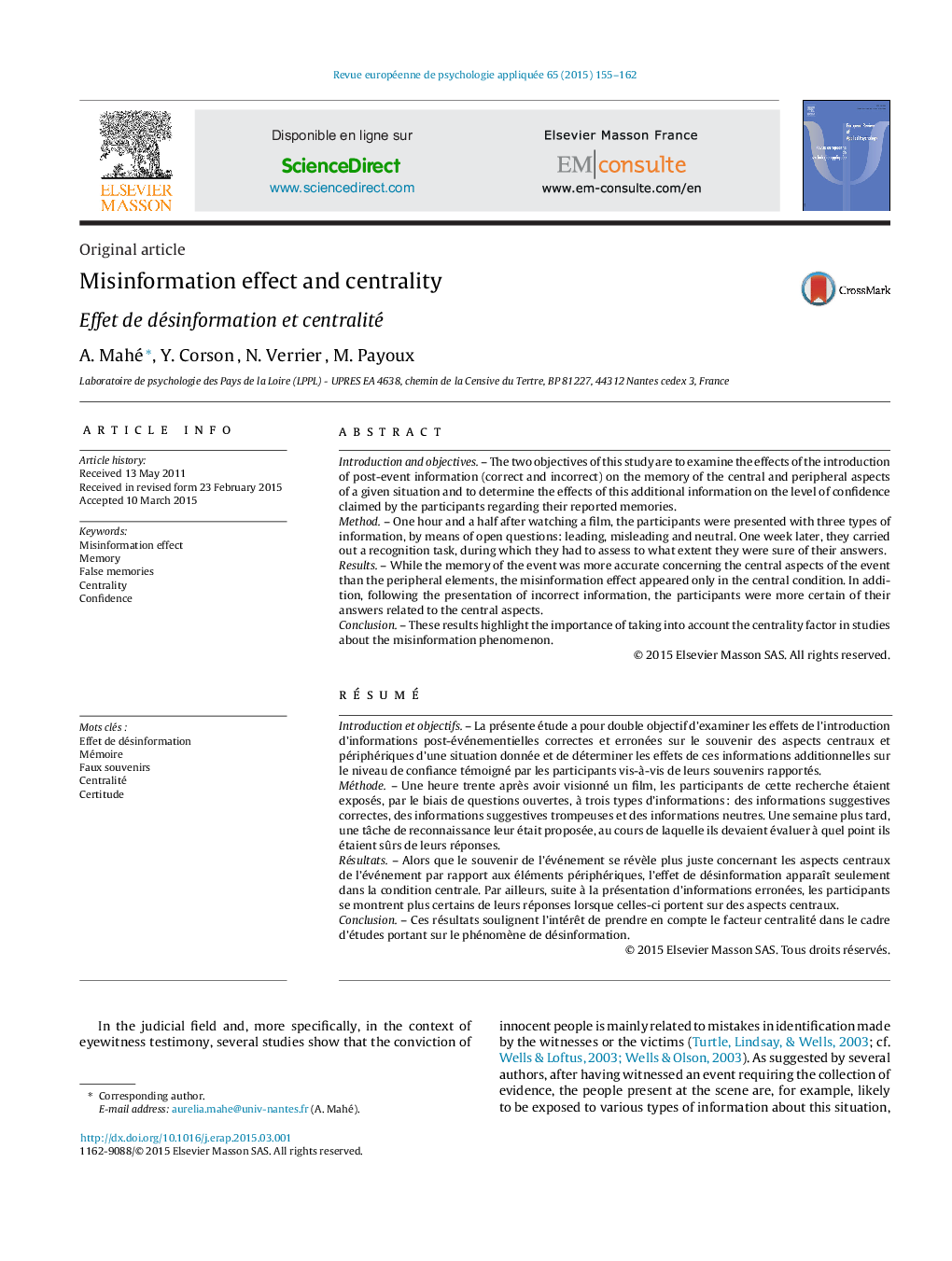| Article ID | Journal | Published Year | Pages | File Type |
|---|---|---|---|---|
| 895438 | Revue Européenne de Psychologie Appliquée/European Review of Applied Psychology | 2015 | 8 Pages |
Introduction and objectivesThe two objectives of this study are to examine the effects of the introduction of post-event information (correct and incorrect) on the memory of the central and peripheral aspects of a given situation and to determine the effects of this additional information on the level of confidence claimed by the participants regarding their reported memories.MethodOne hour and a half after watching a film, the participants were presented with three types of information, by means of open questions: leading, misleading and neutral. One week later, they carried out a recognition task, during which they had to assess to what extent they were sure of their answers.ResultsWhile the memory of the event was more accurate concerning the central aspects of the event than the peripheral elements, the misinformation effect appeared only in the central condition. In addition, following the presentation of incorrect information, the participants were more certain of their answers related to the central aspects.ConclusionThese results highlight the importance of taking into account the centrality factor in studies about the misinformation phenomenon.
RésuméIntroduction et objectifsLa présente étude a pour double objectif d’examiner les effets de l’introduction d’informations post-événementielles correctes et erronées sur le souvenir des aspects centraux et périphériques d’une situation donnée et de déterminer les effets de ces informations additionnelles sur le niveau de confiance témoigné par les participants vis-à-vis de leurs souvenirs rapportés.MéthodeUne heure trente après avoir visionné un film, les participants de cette recherche étaient exposés, par le biais de questions ouvertes, à trois types d’informations : des informations suggestives correctes, des informations suggestives trompeuses et des informations neutres. Une semaine plus tard, une tâche de reconnaissance leur était proposée, au cours de laquelle ils devaient évaluer à quel point ils étaient sûrs de leurs réponses.RésultatsAlors que le souvenir de l’événement se révèle plus juste concernant les aspects centraux de l’événement par rapport aux éléments périphériques, l’effet de désinformation apparaît seulement dans la condition centrale. Par ailleurs, suite à la présentation d’informations erronées, les participants se montrent plus certains de leurs réponses lorsque celles-ci portent sur des aspects centraux.ConclusionCes résultats soulignent l’intérêt de prendre en compte le facteur centralité dans le cadre d’études portant sur le phénomène de désinformation.
